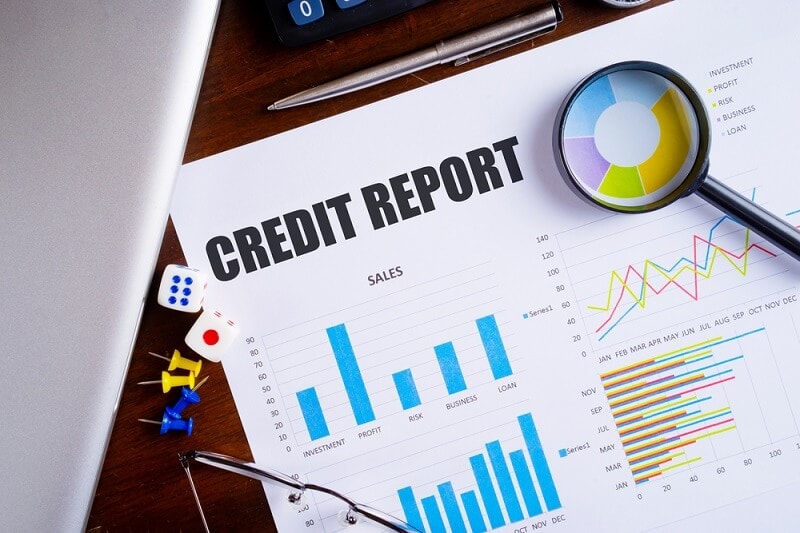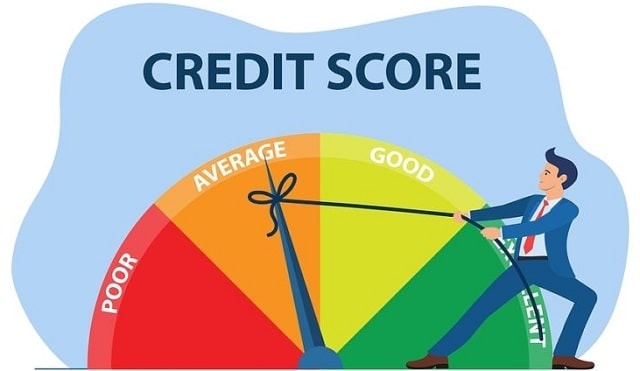A business credit score is a three-digit number that reflects the creditworthiness of your business. Similar to a personal credit score, a business credit score helps lenders, suppliers, and other creditors evaluate the financial health and reliability of your company. The score typically ranges from 0 to 100, with higher scores indicating lower risk.
Maintaining a good business credit score is crucial for the success of your business. It can influence your ability to secure funding, obtain favorable payment terms, and negotiate lower interest rates. A strong business credit score also provides access to higher credit limits and better opportunities to grow your business. By understanding and actively working to improve your business credit, you ensure your company’s financial health and enhance its potential for long-term success.

The Importance of Business Credit Scores
Business credit scores play a vital role in determining a company’s ability to secure funding, negotiate better terms, and manage its overall business finances. A high business credit score demonstrates to lenders and creditors that your company is financially responsible and capable of meeting its obligations. This can lead to access to better loan terms, lower interest rates, and larger lines of credit, all of which are essential for business growth.
It’s also important to understand the difference between business credit scores and personal credit scores. While both types of credit scores assess credit risk, they focus on different aspects of your financial life. Personal credit scores are tied to your individual financial behavior, whereas business credit scores reflect your company’s financial activities.
However, for many small business owners, especially in the early stages, personal and business finances are closely linked, making it essential to maintain a healthy credit score in both areas.

How Personal Credit Impacts Your Business Credit?
As a business owner, your personal credit score can significantly impact your business credit, particularly when your business is just starting out or if you operate as a sole proprietor. Many lenders and credit card companies consider both your personal and business credit scores when deciding whether to extend credit to your business.
This is because, in the absence of an established business credit history, lenders view your personal credit as an indicator of how you might manage your business finances.
Having a strong personal credit score can be advantageous, as it may help you secure loans and credit cards under better terms. Conversely, a low personal credit score can pose a risk to your business’s ability to obtain credit, making it harder to grow. Therefore, keeping both your personal and business credit in good standing is crucial, as it underscores the importance of responsible financial management in both personal and professional contexts.

Factors That Affect Business Credit Scores
Several key factors influence your business credit score, each contributing to how lenders and credit bureaus assess your company’s creditworthiness. One of the most significant factors is your payment history. Consistently making timely payments on your business loans, credit cards, and other obligations demonstrates financial reliability, which positively impacts your score. Late or missed payments, on the other hand, can severely damage your credit rating.
Another crucial factor is the credit utilization ratio, which is the amount of credit you use compared to your total available credit. Keeping this ratio low, ideally below 30%, shows that your business isn’t overly reliant on credit, reducing your perceived risk in the eyes of lenders. A well-managed credit mix, which includes various types of credit such as loans, credit cards, and lines of credit, also contributes to a higher business credit score.

Credit reporting agencies like Dun & Bradstreet, Experian, and Equifax, often referred to as commercial credit bureaus, compile and assess this information to calculate your business credit score. Regularly monitoring your business credit report with these credit bureaus and ensuring accuracy is vital. Discrepancies or outdated information in your credit file can negatively affect your score, so it’s essential to keep your credit information current.
Steps to Improve Your Business Credit Score
Improving your business credit score requires consistent effort and smart financial practices. One of the most effective ways to boost your score is by making timely payments. Ensure that all your bills, including loans, credit card balances, and vendor invoices, are paid on or before their due dates. Late payments not only incur penalties but also negatively impact your credit score.

Another crucial step is to maintain a low credit utilization ratio. Aim to use less than 30% of your total available credit to demonstrate that your business can manage its credit effectively without overextending itself. If possible, pay off your credit card balances in full each month to keep your utilization ratio low.
Regularly reviewing your business credit report is also essential. Check for any errors or outdated information that might be dragging down your score. If you find any inaccuracies, report them to the respective credit reporting agencies to have them corrected. Keeping your credit file updated and accurate can significantly improve your business credit over time.
Additionally, consider adding trade references to your credit file, which can enhance your creditworthiness in the eyes of lenders. These steps, when combined, can lead to a stronger business credit score, enabling your business to secure better financing and grow more effectively.
Managing Your Business and Personal Finances
Separating personal finances from your business finances is crucial for maintaining a healthy business credit score. Mixing personal and business expenses can lead to confusion, mismanagement, and potential harm to your credit if personal financial issues spill over into your business operations. To protect your business credit, open a separate business bank account and use a business credit card for all company-related expenses.
Adopting smart spending practices is essential for managing business expenses effectively. Create a budget that outlines your company’s income and expenditures, and stick to it. Pay your company’s bills on time to avoid late fees and maintain a positive credit history.
Additionally, keep a close eye on your cash flow to ensure you have enough liquidity to cover ongoing expenses. By clearly separating and managing your personal and business finances, you safeguard your business’s financial health and creditworthiness.
Building a Strong Business Credit History
Establishing and maintaining a strong business credit history is a gradual process that requires consistent effort. Start by opening business credit accounts with suppliers and making regular payments to build a positive payment history. These accounts should be reported to credit bureaus to help build business credit over time.
Incorporating trade references into your credit file can also enhance your creditworthiness. Trade references from vendors and suppliers who report your positive payment history to credit bureaus can strengthen your credit profile. Additionally, ensure you’re using various forms of credit, such as credit cards and loans, responsibly to show a well-rounded credit mix.
The key to a strong business credit history is consistency—make payments on time, keep balances low, and regularly monitor your credit history. Over time, these practices will lead to a strong business credit score, opening doors to better financing options and business opportunities.
Common Mistakes to Avoid
Avoiding common pitfalls is essential to protect your business credit score. One major mistake is maintaining a high credit utilization ratio, which can signal to lenders that your business is overextended. Consistently making late payments or missing them altogether can lead to bad credit, severely damaging your score.
Neglecting to regularly check your credit file for errors can also be costly, as inaccuracies may go unnoticed, putting you at moderate risk. Developing disciplined payment habits and keeping your credit utilization low will help you avoid these mistakes and maintain a healthy credit score.
Benefits of a Good Business Credit Score
Maintaining a good business credit score offers numerous advantages. It allows your business to secure funding more easily and negotiate more favorable terms on loans and credit lines. A strong credit score can also lead to lower interest rates and better negotiating insurance premiums, reducing your overall costs.
Additionally, a good score signals low risk to lenders and suppliers, enhancing your business’s credibility and providing more opportunities for growth. These benefits underscore the importance of cultivating and maintaining a robust credit profile for long-term success.

The Path to Financial Health
Managing your business credit score is crucial for your company’s financial health and long-term success. Regularly monitor your credit scores, maintain good financial practices, and ensure your company’s credit remains strong. By prioritizing your business credit, you’ll secure better opportunities and achieve sustainable growth. Remember, strong credit is vital for any business.
